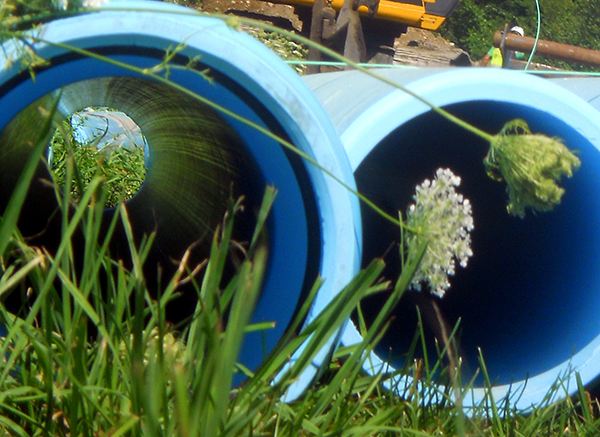In March, Waitsfield settled its lawsuit with VTrans over a 2014 water main break that cost the town $209,548. The town will receive $80,000 from VTrans leaving taxpayers on the hook for $129,548.
Next week the select board will be discussing who should pay for the repairs, whether the debt should be shared by all taxpayers, whether a portion of the debt – or all of it – should be carried by the users of the municipal water system or whether some other fundraiser mechanism should be pursued.
Town administrator Valerie Capels said that despite extensive research and outreach she could find no guiding principle to answer the question of who should pay. Neither the town’s attorneys nor the Vermont League of Cities and Towns had a definitive answer.
“The prevailing opinion was that the cost should be borne by all taxpayers because the water system is a town asset,” Capels said.
When town voters approved building the municipal water system it was with the proviso that the system would be paid for by its users. That fact led some to question how the issue of paying for the water main break would be handled. The select board meets on Monday, April 10, at the town office.
In 2014, a VTrans contractor drilled through a water main near the bottom of Tremblay Road. The break left water system users without water for more than 30 hours, impacting commercial and residential users alike. The town had a temporary fix installed and then permitted and engineered and constructed a permanent fix.
The contractor was working from plans prepared by VTrans that showed the water line in a different location and the contractor failed to contact the town to verify the location of the water main while working to ascertain how the VTrans contractor had received incorrect water system plans.
The town worked for several years with VTrans on the issue, ultimately filing a lawsuit that led to two days of mediation late last year. Per the terms of the mediation, Waitsfield accepted the $80,000 payment from VTrans. Had the town taken the case to court the best the town could have hoped to receive was $115,000 as the legal and engineering fees of $80,000 would not be recoverable.
When the incident occurred, Waitsfield took an $180,000 line of credit to pay for the short-term repair and fund the long-term solution. The emergency incident itself and the short-term fix cost $28,436.
Planning and permitting the permanent solution cost $8,660 and constructing that solution cost $76,423. Legal costs –which included negotiating and securing an easement to move the location of the water main – as well as filing the lawsuit and mediating came to $79,073 and engineering costs came to $11,979.
The town was assessed $3,060 interest on the line of credit, bringing the total cost of the incident to $209,548.
The town’s 2017 budget includes a line item earmarking $15,000 toward paying down the line of credit. The line of credit will be rolled over, applying the $80,000 plus the $15,000 to the debt leaving the town owing $114,548.
Capels said the board preferred not to borrow and would rather chip away at the debt annually, allocating $15,000 per year toward the pay down, which would take 7.64 years to retire.






